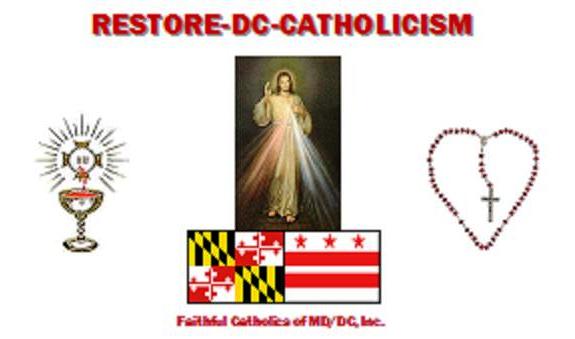- Why "right before"? Why were they not advised to take advantage of that sacrament at earlier times during their course?
- Were the cohabitating couples ever advised that they should separate (that is, cease fornication) during the course of their marriage preparation
- If they were urged to confess, were they urged to confess the mortal sin of fornication? Were they even taught why fornication is a mortal sin?
I suppose that list of questions could go into infinity, but I'll stop here. As I said in the last post, no sacramental grace (including from matrimony) can accrue to those in a state of mortal sin unless one receives the Sacrament of Confession. The fact that Confession in Leon's case seems to have been delayed until the eve of the wedding makes me wonder if that sacrament is being misunderstood, and to such an extent as to compromise the efficacy of that Sacrament. As I said, I'll be trotting out the Baltimore Catechism (used to prepare me for my first confession).
Here is Question 384: What must we do to receive the Sacrament of Penance worthily? To receive the Sacrament of Penance worthily we must:
first, examine our conscience
second, be sorry for our sins (contrition)
third, have the firm purpose of not sinning again
fourth, confess our sins to the priest
fifth, be willing to perform the penance the priest gives us
first, examine our conscience
second, be sorry for our sins (contrition)
third, have the firm purpose of not sinning again
fourth, confess our sins to the priest
fifth, be willing to perform the penance the priest gives us
If Confession really occurs on the eve of the wedding, how does that allow for a proper examination of conscience and, more telling, testing of the purpose of not committing fornication again?
Let's look at several other questions in succession, and I'll put comments in red.
Question 388: What is contrition? Contrition is sincere sorrow for having offended God, and hatred for the sins we have committed, with a firm purpose of sinning no more. Under the scenario that Leon described, was a hatred for the mortal sin of fornication properly instilled in the marriage prep attendees?
Question 389: Will God forgive us any sin unless we have true contrition for it? God will not forgive us any sin, whether mortal or venial, unless we have true contrition for it. Unless that hatred of fornication has been instilled, there is no forgiveness of that mortal sin. How can this be interpreted otherwise?
Question 390: When is sorrow for sin true contrition? Sorrow for sin is true contrition when it is interior, supernatural, supreme and universal.
Question 391: When is our sorrow interior? Our sorrow is interior when it comes from our heart and not merely from our lips. So how are currently-cohabitating couples being taught to have interior sorrow?
Question 392: When is our sorrow supernatural? Our sorrow is supernatural when, with the help of God's grace, it arises from motives which spring from faith and not merely from natural motives. The natural motives in the case of marriage preparation might include "discharging the formality of confession" as though it was just another item on the "punch list" of things to do before the wedding.
As I pointed out in the previous post, if couples have been committing the mortal sin of fornication, they need to receive the Sacrament of Penance worthily before they can properly receive the Sacrament of Matrimony. I recited and commented on the Baltimore Catechism questions to illustrate why I think it's highly unlikely that Leon and his friends were properly prepared to receive either Penance or Matrimony. I have good reason to believe this scenario is repeated in parishes throughout the world. Are the twenty couples being married tomorrow also victims of ill-considered marriage preparation?
The divorce rate for Catholics is roughly on a par with that of non-Catholic couples; that's indicative that God's laws about marriage and sexuality are not being taken seriously, assuming they are known at all. I realize a good deal of Catholic education is below par, but in this day of the internet, there is no excuse for not filling in the gaps of our own education.
If the couples whom the Pope will marry tomorrow have indeed been properly instructed, I ask why the new article (particularly from Catholic sources) did not make that clear. The lack of such mention leaves too much room for ambiguity and even scandal.







First we had the "Who am I to judge?" gay message that rippled across the world...now we've got "Fornicator's Catholic Matrimony" without a mention of FIRST confessing the sin, then remaining celibate and living apart until the actual marriage takes place. The message Pope Francis has sent to the heterosexual world is "Who am I to judge your fornication?" Great job Papa...just great. *sigh* :(
ReplyDeleteDoes this pope believe in the Sacrament of Confession??
We are living in the age of confusion and those who are supposed to be the voice of authority to dispel the confusion are, instead, fostering it. It's a serious problem, I think, since confusion is the "smoke" that comes from the deceiver's censer. And he uses plenty of it, ref. Pope Paul VI's statement that the "smoke of Satan has entered the sanctuary."
ReplyDelete